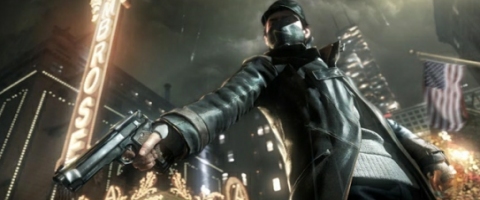Diablo 3's Consumer Mistreatment Proves Gaming Needs A Watchdog

A lot of what's transpired over the past month hasn't really been good for consumers, regarding the Diablo III case. Outside of the United States and United Kingdom a couple of consumer advocacy groups are trying to get Blizzard to change their ways, but this whole thing reeks of anti-consumerism all the way around, which proves gaming needs a legit watchdog, and not just for Blizzard.
It's funny because in the upcoming Ubisoft game, Watchdogs, these guys monitor all the ins and outs of people's lives. They can nail bad guys using city infrastructure to their advantage or learn anything about a target with the tap of a few buttons. In real-life, though, we don't need super-spies watching our every move, we just need a watchdog group who can bring consumer concerns within the gaming industry to the public's attention at large. Originally, this would be the gaming media, but there are only a few reliable sources within the medium that consumers can rely on.
A recent editorial over at The Atlantic vouches for a Gamer's Bill of Rights, they jokingly refer to Ralph Koster's website where he also makes up an addendum of fictional player rights. The real issue, though, is that The Atlantic is serious, and their concern funnels from the same place that my concern comes from: Consumers should never have to battle their way into the public eye for fair treatment.
This very issue popped up during the false advertising of Street Fighter X Tekken, as well as the DLC and ending issues of Mass Effect 3, as well as the disc-locked content found in Risen 2: Dark Waters.
I'm also talking about the player-cap limit on the Asia server for Diablo III, where only a specific amount of players are allowed on the server at any single time, thus limiting when a lot of South Korean players are allowed to even log-in and play the game. Essentially, you're paying for a service that you can only access when the company feels it viable for you to access it. This same restriction has spilled over into the way South Korean internet cafes operate, causing them tons of business, revenue and customers. In turn, cafe owners are suing Blizzard.

What's unfortunate is that the only reason legal action was taken was because the shop owners were losing money, but it certainly wasn't because gamers weren't able to play a product they paid for.
In France and Germany the issues are a bit different, their regional consumer watchdog groups, UFC Que Choisir and VZBV, are taking Blizzard around the block for a good legal lashing. The idea is that these groups work to protect consumer interest, and when a consumer buys a product they do so in trust that the product will work as advertised, will function without additional tertiary means and that they are generally safe when using the product as instructed.
Your Daily Blend of Entertainment News
In the case of Diablo III, there is no warning on the box that purchasing the game within the first two months makes you eligible for account thievery and that authenticators are required for your protection. There is no statement on the box indicating that not only do you require a good internet connection but that you may or may not be able to play depending on Blizzard's server load. Gamers buy into the product blindly with nary a word from many major review sites indicating that even a month after launch, there are gamers in some regions who simply cannot play the game correctly, even if they do have an internet connection.
The reality is that consumers were taken for a loop. There is no way around that. However, it doesn't mean consumers should have to deal with a problem they didn't ask for. Remember, games are supposed to be about fun and entertainment?
In Korea the Government stepped in to regulate, or rather ban, all virtual item trades for real-money, since bot-farming and gold selling got completely out of hand thanks to the electronic economic surge pilfered through the grey market of Blizzard's ARPG juggernaut.
We don't need all virtual item trades for real-world currency banned in every other country outside of South Korea. We certainly don't need intrusive, totalitarian Government regulation on all forms of electronic entertainment. But it would be nice if we had a watchdog group vigilant enough to keep some sort of standard in place. This way gamers who simply want to play a game they paid for can do so without reverting to terms-breaking measures, such as the cracked offline version of Diablo III, which can result in your BNet account being locked, or trying to grab the attention of the developers by shouting into the void that is the Diablo III forums.
Gamer's Voice looked like a great watchdog alternative for disgruntled consumers, but we haven't heard much from them and they don't seem to carry a lot of political weight behind them, but hopefully we can get more groups sprouting up to defend consumers from a lot of the anti-consumerist measures being tossed around in the gaming industry.
The best gamers can do for now is file a complaint with the Better Business Bureau or contact America's Watchdog in hopes of getting your cries heard.
Staff Writer at CinemaBlend.

